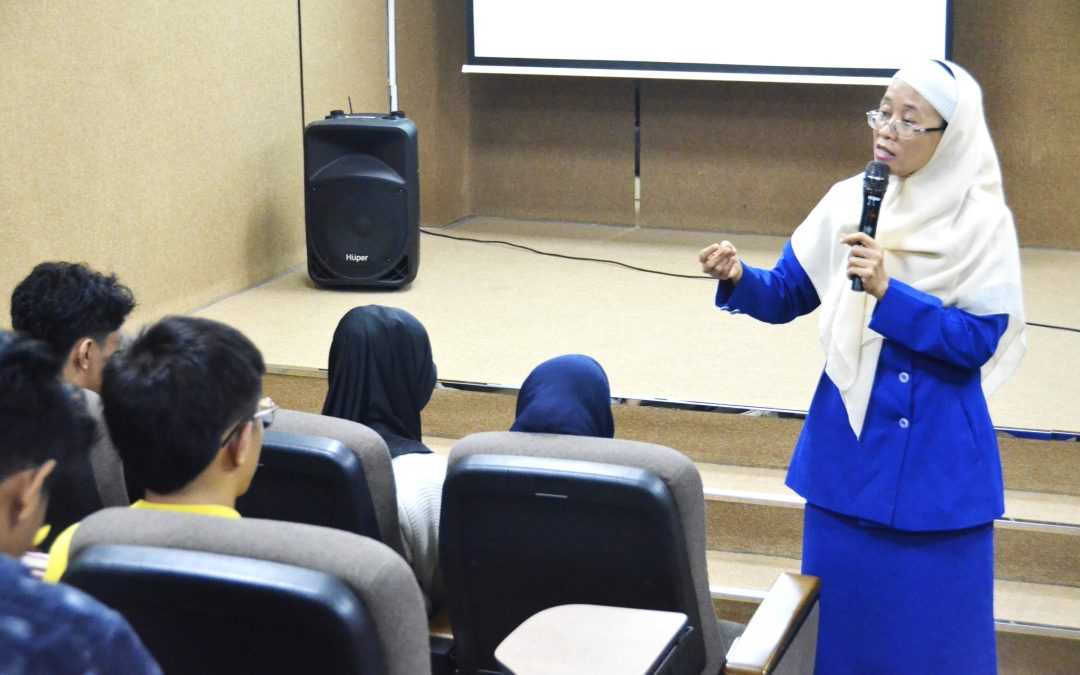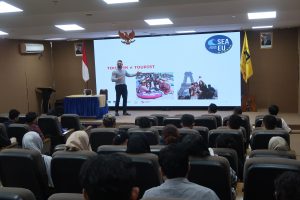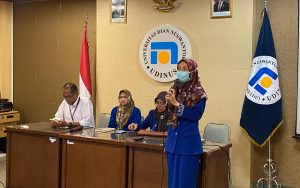Three lecturers at Universitas Dian Nuswantoro (Udinus) presented their study on the Reception and Utilization of Excise Funds from the Tobacco Commodity for cigarette factory workers in Central Java.
The study was presented at a press conference held in the theater room on the fifth floor of the I building at Udinus, with students and lecturers attending the conference. The study was a collaboration between the Economics and Business Faculty and the Health Science Faculty at Udinus. The research was led by Juli Ratnawati, SE., M.Si., involving two other members Widya Ratna Wulan, S.KM., M.KM., and Aprianti, S.KM., M.Kes.
Juli Rahmawati, the Leader of the Research team, explained that this study focused on the significance of excise funds in improving the well-being of cigarette factory workers. To conduct the research, the team spread 400 questionnaires to workers from two cities in Central Java, including Pati and Kudus.
“We also conducted an interview with various institutions, including the Workforce and Transmigration Service and the Work Training Center of Central Java,” Juli revealed.
One of the main findings in their research shows that the Funding Welfare Program (BLT) received by the workers valued at Rp. 1.2 million, and it helps these workers’ economies. However, even though the funding is relatively effective, the training program initiated by the government and received by these workers has not shown any sign of optimal results.
“The training program normally lasts for 14 to 30 days in the afternoon. As a result, the workers did not attend the program as it would mean abandoning their jobs,” Juli explained.
In addition, this research also highlighted that there has also been aspiration from these workers for this training program to help them switch their professions. Moreover, these workers also sought to continue their careers in other sectors. Thus, they would not have to only depend on the cigarette industry.
However, many of these workers sent their family members on behalf of them to participate in the training program. This is because the long-spanning training program did not align with their working schedule. Juli also asserted that an effective and flexible training program was necessary so that the workers would be able to participate. This would also reduce the dependency rate on the cigarette industry.
“If the government could make the training more flexible and give an income compensation during the program, we would be sure that many of these workers would actually participate in the program,” she concluded.
These findings are expected to be a way for the government to consider the implementation of this training program, particularly in initiating an effective training program for the cigarette factory workers. The press conference was also attended by Dr. Usman, S.Si., M.T., M.Si., the Vice Dean of the Economics and Business Faculty. On that occasion, he also delivered an opening speech. (Humas Udinus/Alex. Foto: Humas Udinus)







